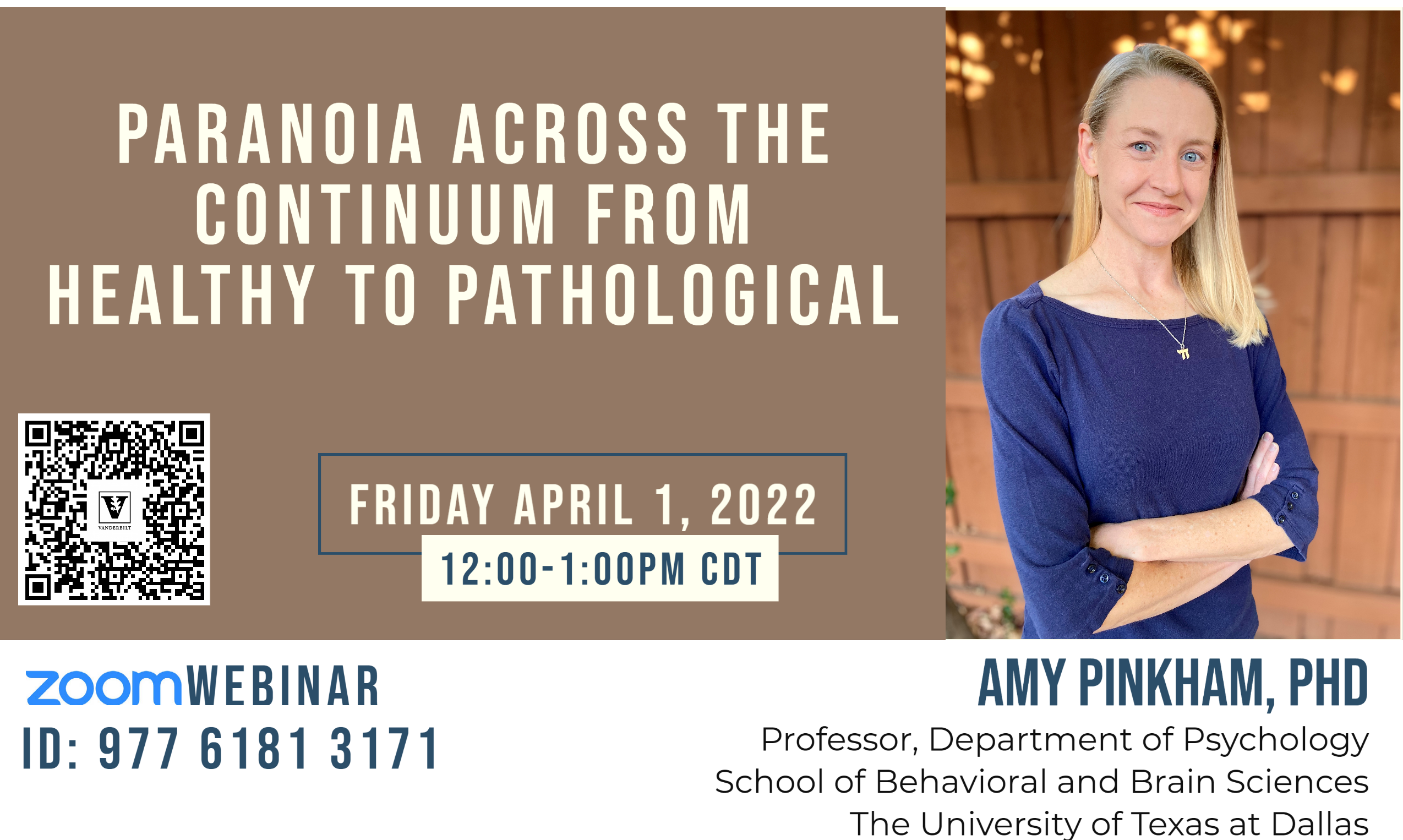
"Paranoia Across the Continuum from Healthy to Pathological"
Amy Pinkham, PhD is a Professor of Psychology in the School of Behavioral and Brain Sciences at The University of Texas at Dallas. Dr. Pinkham’s research uses functional neuroimaging (fMRI) and behavioral techniques to examine how the brain processes social information, how these neural systems may be disrupted in schizophrenia and related disorders, and the behavioral consequences of these impairments.
Dr. Pinkham has been awarded multiple research grants from the National Institute of Mental Health and several foundations supporting the advancement of mental health. She has authored over 120 peer-reviewed publications and 10 chapters. She was also recently selected as the recipient of the Lewis Alan Opler Prize awarded for contributions in measurement by the International Society for CNS Clinical Trials and Methodology. She is currently serving as Associate Editor of the Journal of Experimental Psychopathology and serves on the editorial board of the Journal of Psychopathology and Clinical Science (formerly the Journal of Abnormal Psychology).
Objectives
The activity is designed to help the learner
- Define paranoia and provide evidence for it as a transdiagnostic and dimensional construct
- Demonstrate how paranoia impacts the processing of social information
- Discuss how paranoia relates to everyday functioning
- Review evidence for a neurobiological mechanism of paranoia

This talk is sponsored by the Luton Lecture Fund, Department of Psychiatry and Behavioral Sciences. This educational activity received no commercial support.